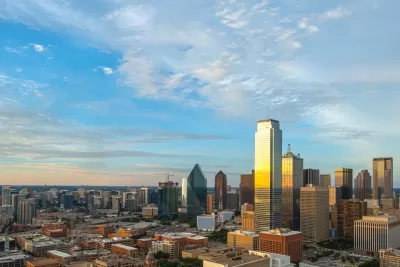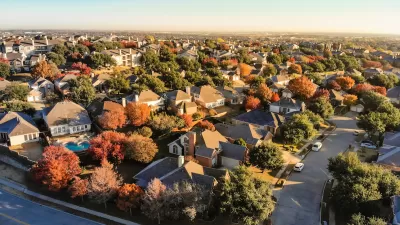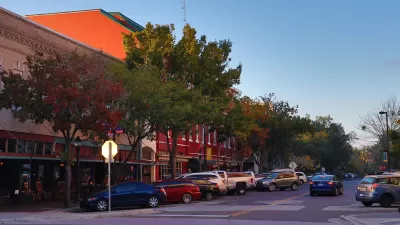The City Council's decision to allow increased density for a development of single-family homes has received strong opposition from neighbors.

A rezoning approval in Dallas is spurring backlash from the community, reports Matt Goodman. The City Council voted to upzone the 3.5-acre lot owned by the city to allow for the construction of 26 single-family homes in an area that would have previously only allowed for nine on a lot of that size. Money from the purchase would fund the refurbishment of a local library, per the bond covenant created in 2006 when the city bought the parcel. As Goodman writes, this is a only small increase in density. "This is not an affordable housing story. It’s not market rate apartments." The homes, if built, will sell for over $1 million each.
The majority of the city council supported the proposal. "The city will never build its way out of its housing shortage if it allows neighborhoods to remain in stasis, particularly with a plot of land that has sat unused for more than a decade."
But neighbors want to see fewer homes, despite assurances from city engineers that the development would not have a negative impact on traffic and concessions from the developer that include "larger setbacks, no second-story windows on homes facing the neighborhood, moving the power lines, planting more trees and replacing any that die or are damaged, installing 6-foot-wide sidewalks."
The council's decision to move forward with the rezoning could impact future developments in other parts of the city.
FULL STORY: North Dallas Is Getting a Little More Density and Some Neighbors Are Furious

Planetizen Federal Action Tracker
A weekly monitor of how Trump’s orders and actions are impacting planners and planning in America.

Map: Where Senate Republicans Want to Sell Your Public Lands
For public land advocates, the Senate Republicans’ proposal to sell millions of acres of public land in the West is “the biggest fight of their careers.”

Restaurant Patios Were a Pandemic Win — Why Were They so Hard to Keep?
Social distancing requirements and changes in travel patterns prompted cities to pilot new uses for street and sidewalk space. Then it got complicated.

Platform Pilsner: Vancouver Transit Agency Releases... a Beer?
TransLink will receive a portion of every sale of the four-pack.

Toronto Weighs Cheaper Transit, Parking Hikes for Major Events
Special event rates would take effect during large festivals, sports games and concerts to ‘discourage driving, manage congestion and free up space for transit.”

Berlin to Consider Car-Free Zone Larger Than Manhattan
The area bound by the 22-mile Ringbahn would still allow 12 uses of a private automobile per year per person, and several other exemptions.
Urban Design for Planners 1: Software Tools
This six-course series explores essential urban design concepts using open source software and equips planners with the tools they need to participate fully in the urban design process.
Planning for Universal Design
Learn the tools for implementing Universal Design in planning regulations.
Heyer Gruel & Associates PA
JM Goldson LLC
Custer County Colorado
City of Camden Redevelopment Agency
City of Astoria
Transportation Research & Education Center (TREC) at Portland State University
Camden Redevelopment Agency
City of Claremont
Municipality of Princeton (NJ)





























